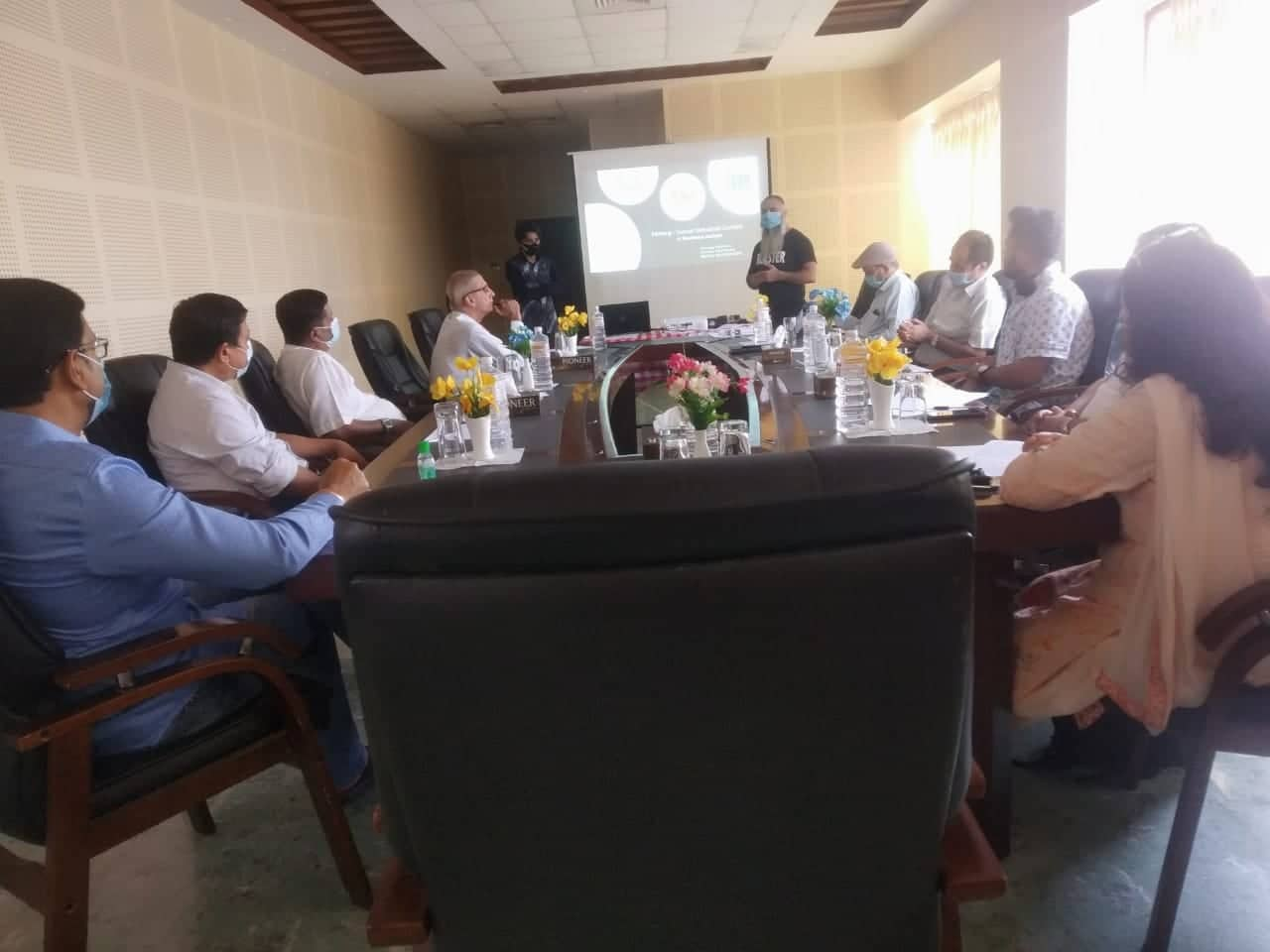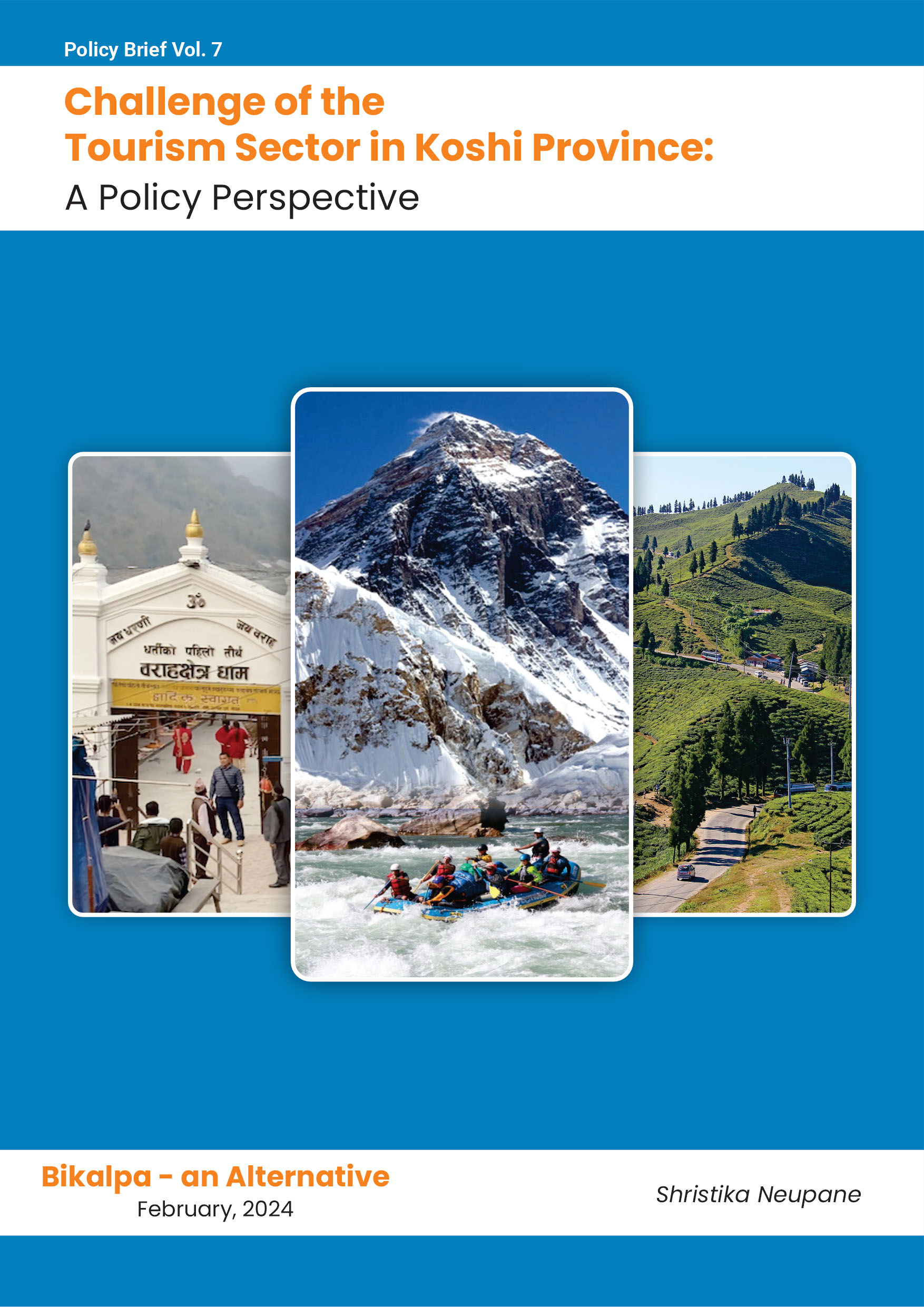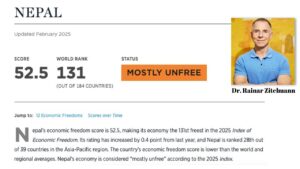Public-Private Dialogue is a program that assembles corresponding stakeholders that include policymakers, intellectuals, academicians, entrepreneurs and civil society members to gather surplus insights and information on a certain policy research paper. Bikalpa an Alternative conducted a Public-Private Dialogue on “Morang- Sunsari Industrial Corridor” that involved a total of 10 stakeholders from industrial sectors, FNCCI, MEDPA, Morang Merchant Association, Provincial Government and Civil Society members. The event was held at Hotel Ratna on 2nd of October, 2020.
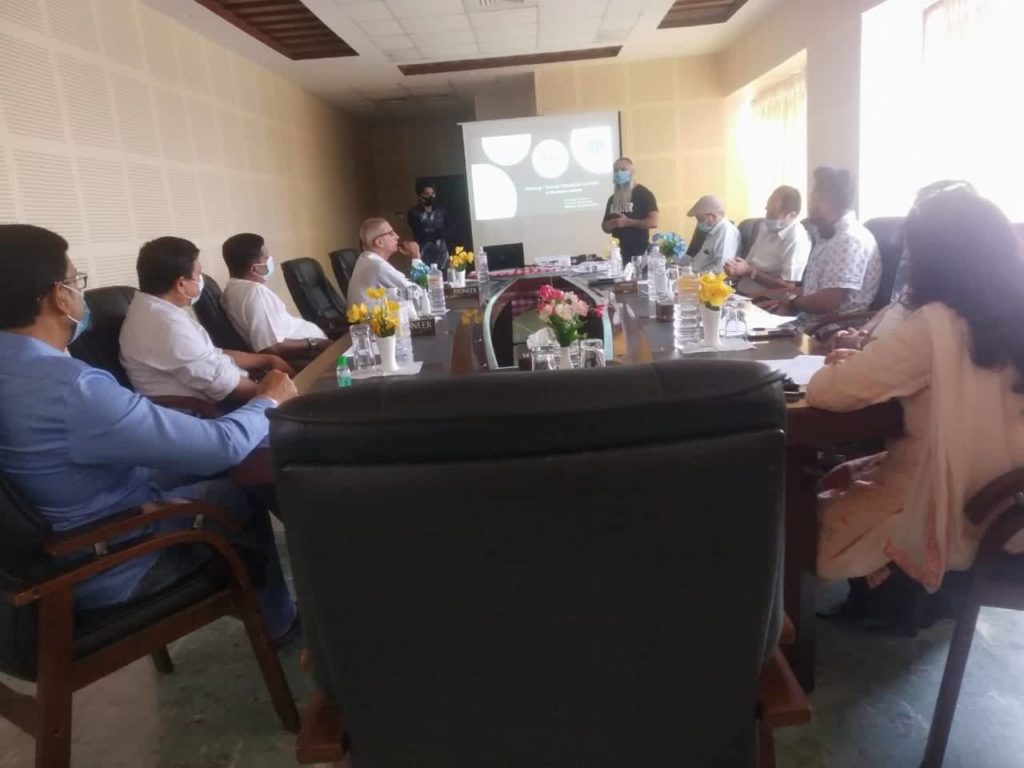
The program was facilitated by Basanta Adhikari, director of Bikalpa an Alternative followed by a short presentation on the findings of the research paper on Morang Sunsari Corridor presented by Sarwagya Raj Pandey, researcher at Bikalpa. The research paper highlighted the problems faced by industries in the Morang- Sunsari Corridor, explored the reasons behind their closure, labor issues, and the potential policy prescriptions in overcoming these challenges in the manufacturing sector in the near future. Following the presentation, the floor was open for discussion. The following are the opinions expressed by the stakeholders:
Mukesh Upadhayaya (Chamber of Industries)
Back then, Biratnagar was popular as an industrial zone but at present, Bhairawa, Butwal, and Nepalgunj have taken over the competitive advantage this region once enjoyed. We have been demanding for declaration of Biratnagar as a special economic zone for 5 years now. Instead, the central Government announced Nuwakot as an economic zone but turned a blind eye to this corridor.
Morang Sunsari Corridor is an unofficial term coined by Nepali business groups rather and hasn’t been officially declared as an industrial area or an economic zone. Despite having huge political influence in national politics, this city with such a great potential near a very strategic border crossing has been largely ignored by the Government.
Nepal’s past and current laws and policies have depressed industrialists rather than uplifting them. The possibilities of FDI entering Nepal is very low. The hazardous policies and rules of Nepal discourage foreign investors. Most importantly, Getting FDI is a distant dream because our protectionist policies and tight fiscal policies don’t allow investors to take profit away from the country which hugely discourages investors to invest in the country.
The Social Security Fund scheme is also obstructing industrial growth.
Parash Luniya ( Industrialist – Arihant Group )
Political instability is not a reason for industrial decline at all because political instability impacts the entire country and not just one region. So the backwardness of Morang- Sunsari corridor can’t be blamed on political instability. The development of the other cities like Birgunj, Butwal and Bhairawa are the main reasons for Biratnagar’s industrial decline. The cost of factory set up, lands and even the agricultural products of those cities are a lot cheaper than that of Biratnagar.
The vague registration process that came along with federalization has discouraged the industrialists. Likewise, local bodies have framed unwanted burdensome taxes on traders and industrialists. There is no stability on taxation.
SAFTA is contextual. It has some good aspects and some drawbacks too. It is only beneficial for the products that we can produce in our own country. However, this would make it difficult for domestic manufacturers to compete with foreign regional manufacturers from India who enjoy larger subsidies on raw materials in their country and have unfair advantage over Nepali manufacturers. Small countries like Nepal will never be able to provide such a level of subsidy on raw materials to its domestic industries. Besides, Nepal has inadequate raw materials and import duty on raw materials is very high. Consequently, it increases the production cost.
Government should immediately address all the problems of industrialists. Domestic growth is very crucial. Obviously, it will take many years to be self-dependent but we must begin it from now. The protection of cartels has to be stopped. There needs to be more stress in local governance so that industrialists can have their grievances addressed through the local government.
The state should provide protection to the local and domestic industries. Our industries cannot flourish unless the government does some investments on them.The government needs to focus on helping mass production industries by forming right policies. There needs to streamline policies that focus on protecting industrial investment. For instance, the government can protect local industries by changing their policies on import of plastic and metal final products, since many metal industries in the country suffer because of it.
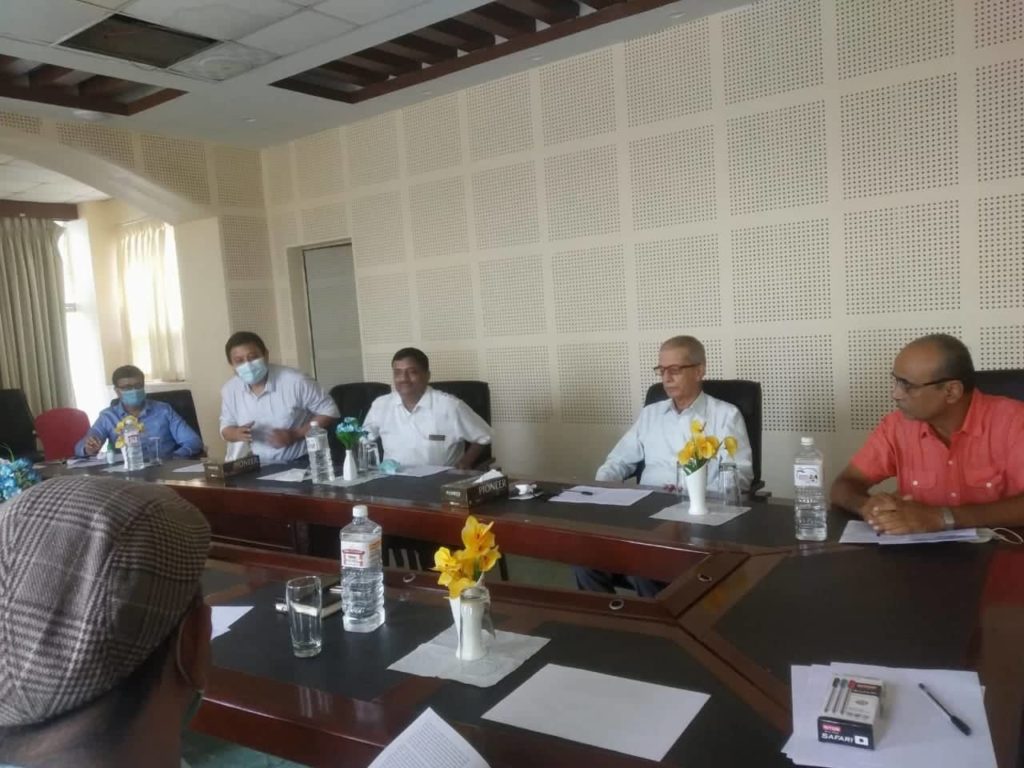
Besh Prasad Dhamal (Economist )
Nepal’s policies and investments in the industrial sector have been very myopic. Political instability and frequent policy change are the leading cause behind the stagnant industrial growth of Nepal. Because of uncertain policies and administrative hassles, FDI has been very nominal in Nepal.
This is the era of Free Trade and competition but it is necessary to grant subsidies to encourage the industries in order to allow them to compete with neighbouring countries, which also provide a lot of subsidies to their domestic industries. Economic policies should be implemented by looking at the actuality of circumstances rather than through theoretical insights of demand and supply.
At present, demand for electricity is almost fulfilled but it is still insufficient for the industries. Electricity should be developed and connected to the transports and infrastructures but the government brought a huge contradiction by increasing taxes on electrical transportations. Furthermore, if we are not able to manage electricity in the coming decade by prioritizing area where we intend to sell the surplus energy that we generate, then lot of our big hydropower projects will go bankrupt.
Our nation is still in preliminary stages of industrial development. So, Government should edify the current scenario of the industries by providing the required incentives to the industrialists and by implementing long-term strategies.
Abinash Bohora (Central Member of FNCCI)
Nepal lies in between the two powerhouse countries. Only, 7% of the total workforce of Nepal are involved in the manufacturing sectors. Moreover, the indicator that calculates GDP of Nepal is totally inaccurate.
The present economic setting of Nepal is entirely driven by remittance. Poverty reduction and significant growth is only due to the inflow of remittance. Trade integration is the most lacking area. It is obligatory to reshape the economy by making it a trade and entrepreneurship driven.
Government of Nepal never considered getting linked to the Global supply chain. The sustainable growth of the nation is unattainable unless we connected to the global value chain.
The restriction on investment policy is very evident. FDI is the critical engine for rapid economic growth. It seems that Nepal has already missed the economic boat of the world.
The world sees SAFTA as a slow-moving agreement. ASEAN could be a better alternative.
One window policy is only limited to the act and has not been implemented yet. Likewise, bank and finance corporations show hesitation on providing loans to the fresh entrepreneurs and demotivate them.
13% VAT is onerous and increases the cost of production. The government is still not able to ease out the cost of doing business.
Chudamani Bhattarai (Chamber of industries Morang )
The data used on the presentation is quite old. The use of detailed and current data is required. Similarly, Fiscal and banking policies and the effect of those policies on industries are missing in the presentation.
The negative perception of civic towards the industrialists and entrepreneurs needs to be changed through education.
The factors that come under the industrial ecosystem that determine the growth of industries, and changes occurred during the downfall of the Morang- Sunsari corridor must be studied and presented in research. Value chain analysis needs to be done.
Sabita Koirala (MSE specialist for MEDPA, Province no. 1)
The hassles for the industrialists start right from the beginning of the planning phase. The inescapable bureaucratic hurdles are very obvious.
The perspective on enterprises is not optimistic. Small enterprises have to encounter neighbors’ objections.
The taxes on the import of raw materials is higher than the taxes of import of finished goods. It is easier and cheaper to import goods than manufacture in our country.
Unless the government provides security and certainty, the blame game and distrust between the state and industrialists cannot be obliterated.
Harihar Poudal (Provincial Government )
Nepal National Single Window (NNSW) has accomplished 40% of its work. It is under the trade facilitation projects and intends to establish a trade portal. Everyone can get access to related agencies like FNCCI, CNI, and other government agencies. The entrepreneurs can also obtain the document attachment facilities from home through NNSW.
Government has provided lots of subsidies to flourish the agricultural and production sectors but those subsidies reach in the hands of brokers instead of the ones in need. So, the problem is not on the act rather the complications are on its implementation.
The provision of Exim code is very relevant to control the massive number of importers.

